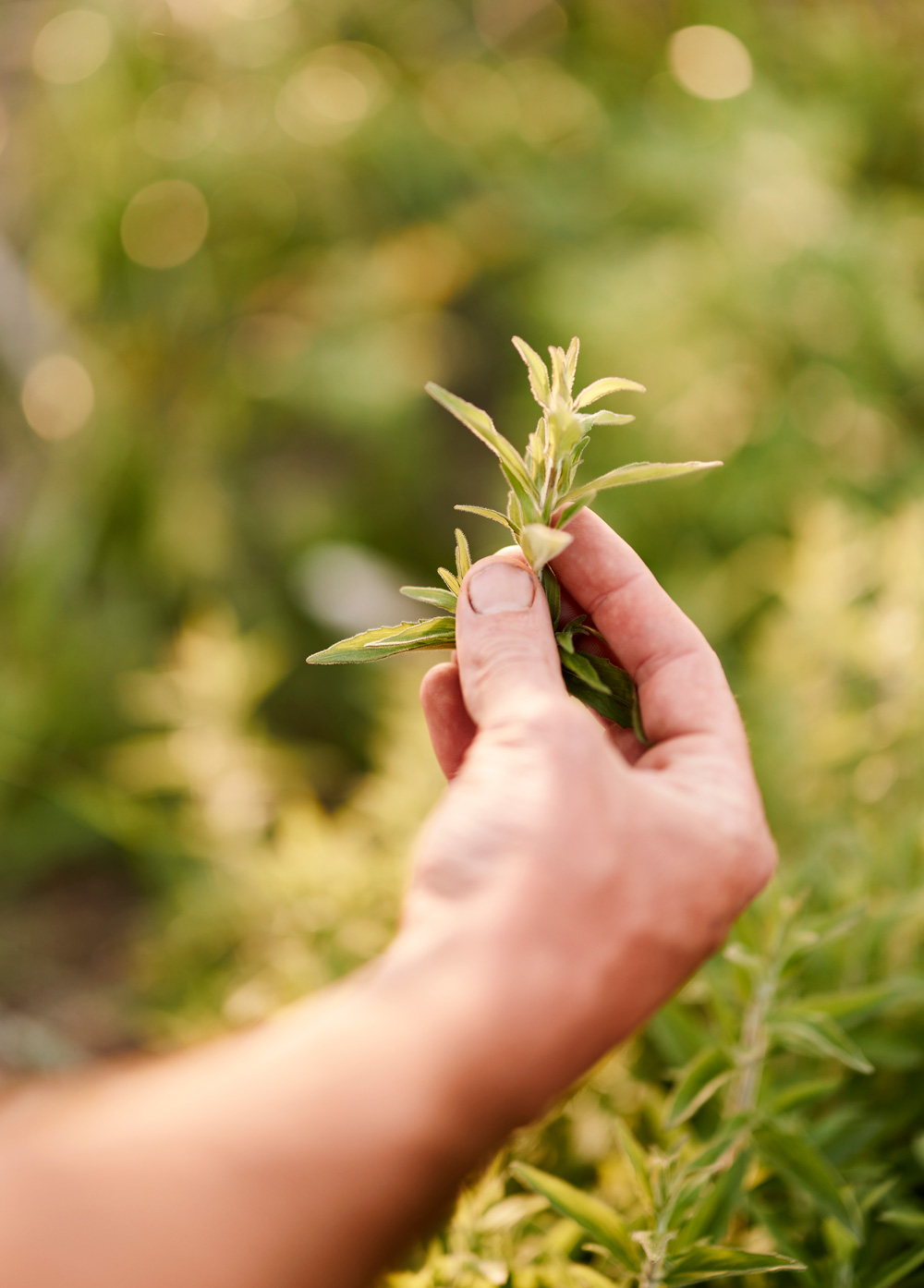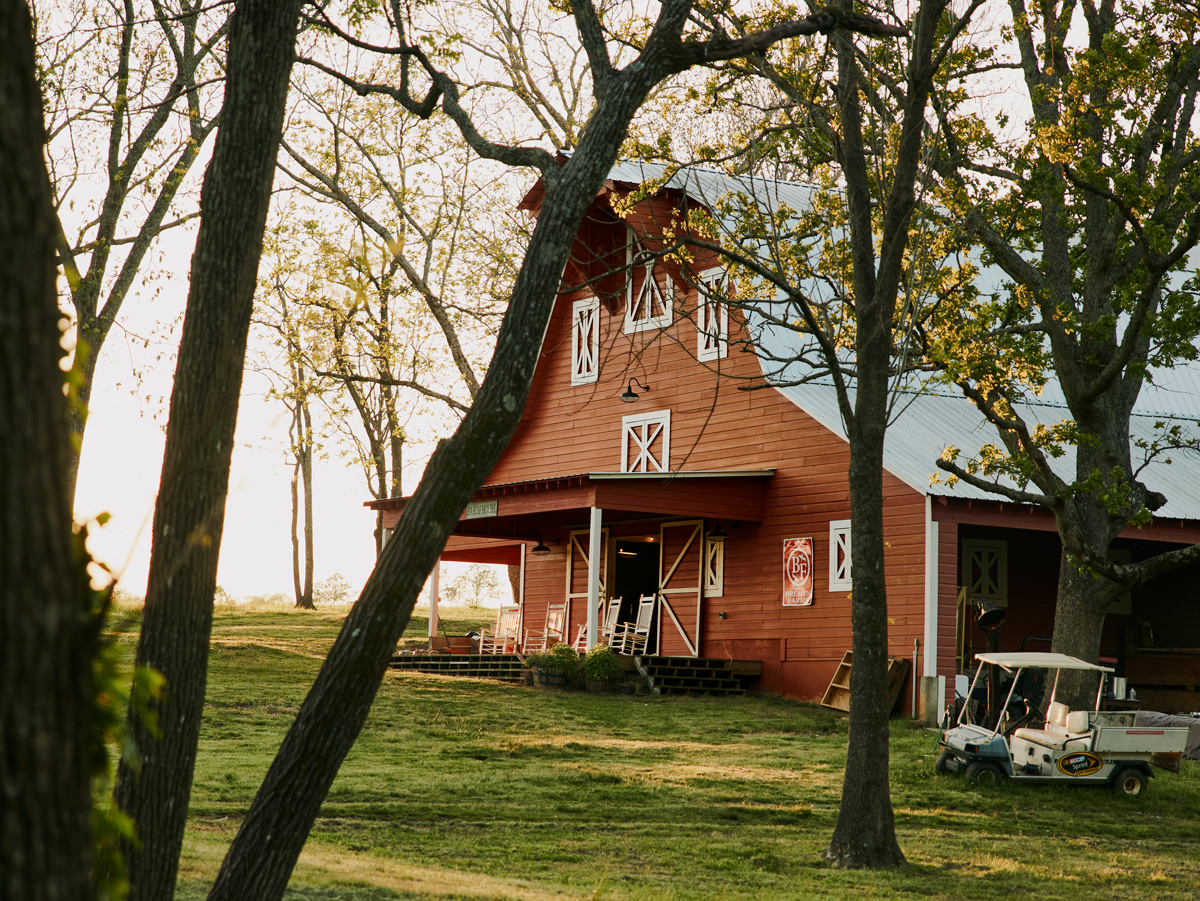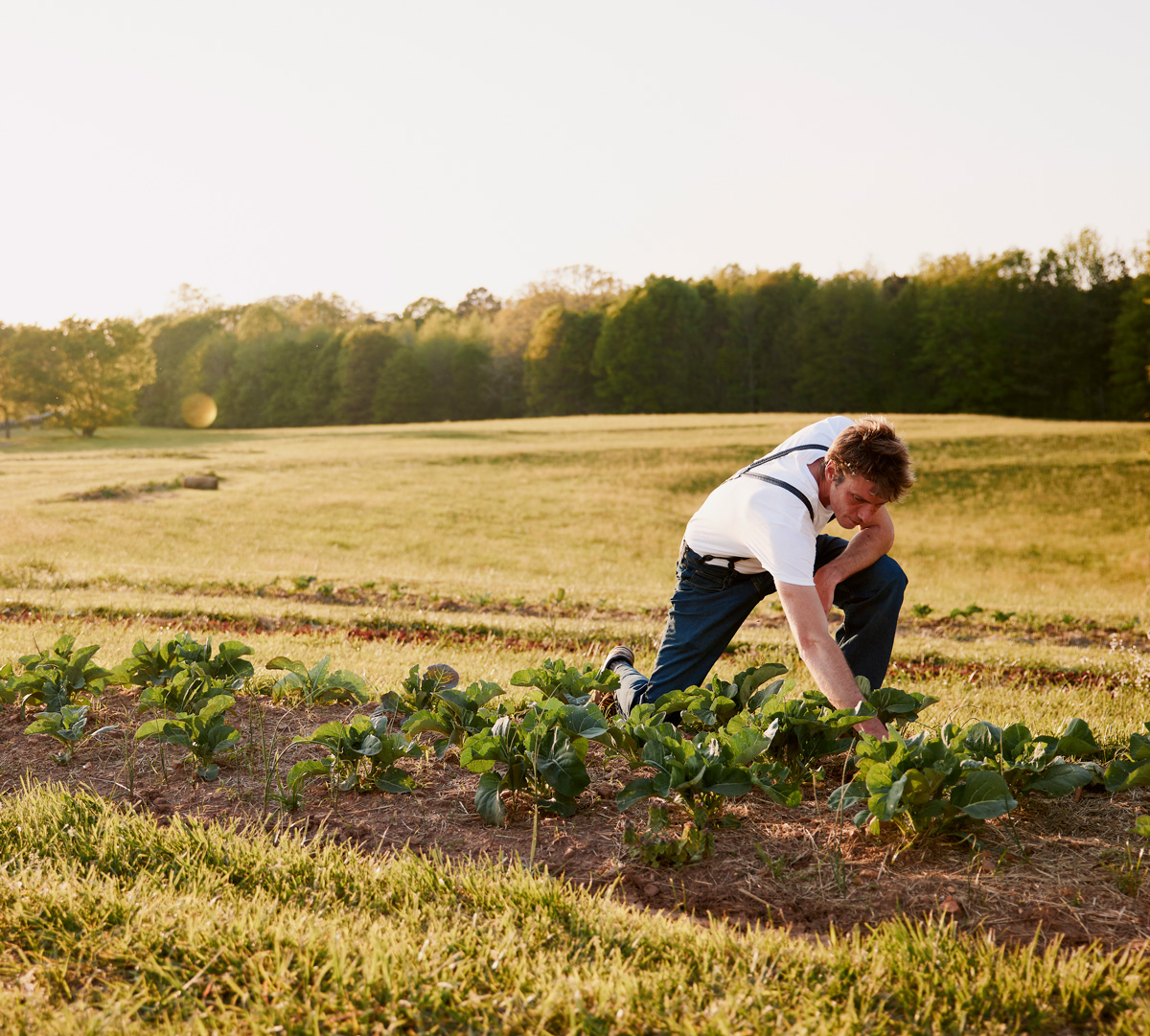
Photograph by Ben Rollins
Around the age of 17, Grant Wallace, amid the cacophony of suburban sprawl, discovered Henry David Thoreau. His book Walden and other writings, notably the essay “Walking,” held a strange magnetism. Phrases like “I went to the woods because I wished to live deliberately” and “All good things are wild and free” struck chords with Wallace. The idea of a life lived in harmony with nature, stripped of artifice, ignited a quiet rebellion within.
While his peers dreamed of college degrees and corporate ladders, Wallace envisioned rows of vibrant herbs, the rich scent of damp earth, sleeping under the stars, and the quiet satisfaction of harvesting his own livelihood. Thoreau’s pages weren’t mere poetic musings; they were a blueprint, a whispered promise of a life in which simplicity and nature reigned supreme.
Wallace was born in Salinas, California, aka the “Salad Bowl of the World,” where he saw the farming of lettuce and produce and was “deeply inspired” by it. At age eight, his family uprooted, moving to Georgia to support an import business. He left home as a teen. “Yeah, I read some Henry David Thoreau and thought I was going to live on my own terms and moved into a barn,” he says. “But then I got my life together, met my ex-wife, and that’s when I started my first farm.” Wallace has three sons, ages 15, 13, and 10, who spend weekends on the farm, where he provides for himself and the restaurants that use his produce.

Photograph by Ben Rollins
While selling produce and herbs at farmers markets in metro Atlanta, Wallace met Hudson Rouse, owner of Pure Quill Superette, Rising Son, and Whoopsie’s, who hired him to till Rouse’s nearby farm in Rockdale County. Rouse introduced him to Terry Koval, now chef and owner of The Deer and the Dove, who was then chef at Wrecking Bar.
“He [Koval] was my first wholesale customer, and he introduced me to Nick Rutherford at The Porter, and from there I started getting involved with chefs,” Wallace says. “It was really cool that chefs were making me feel like I was doing something worthwhile, and they, like me, were really excited about it.”
He wanted to learn more about the business, to learn from the other side, so he worked as garde-manger [a cook who specializes in cold food preparations] at Wrecking Bar for one winter. When the church friend who let him farm his Conyers property passed away, Wallace lost the land. Three years ago, Karl Gorline, now chef and owner of Avize, then chef at The Woodall, introduced him to customers who owned a 660-acre property in Buchanan—about 60 miles west of downtown Atlanta—and Wallace’s farm and herb business, Our Apothecary at Bremen Farms, was born.

Photograph by Ben Rollins
Wallace’s farmstead is marked by a stately old barn that sits before rolling hills and against an azure sky. Bright red with a sweeping, arched roof, it was built from a Sears Roebuck barn kit in 1925. Wallace dries herbs for teas, seasonings, and floral smudge sticks under the symmetrically arched rafters of the Gothic hayloft. He sleeps there on hot summer nights, too.
Two barn cats and a floppy-eared bunny greet visitors on the dirt road. There is also a donkey named Daisy Duke on the property. (While giving a tour of the farm, Wallace gets a call from the sheriff that she is running loose in town . . . again.) Capers such as the donkey rescue and creating “the world’s largest smudge stick” are part of the antics Wallace shares on his YouTube channel and Instagram page. “I fancy myself a philosopher every now and again, but it’s also kind of fun to laugh at yourself,” he says.

Photograph by Ben Rollins
His tiny home, with no heat or hot water, sits in juxtaposition to a tree house kit delivered for developers who plan to build a glamping getaway on the property while supporting Wallace’s farm business. They purchased the tiny home for him, as well as an air-conditioned tractor, his only extravagance, a necessity under west Georgia summer sun. Wallace, lean and lanky with wild hair highlighted by the sun, and leather suspenders holding up his jeans, walks at a peaceful pace.
The perennial garden is a short walk from the barn, and it is flush with easy-to-recognize fennel, chives, and cilantro, but Wallace is quick to point out anise hyssop, wormwood, marjoram, and mugwort. “This is like a food forest setup,” he says. “Pomegranate tree, apple tree, native mountain mint . . . it’s got way more eucalyptus essence in it, which is fantastic,” he says. “As I learn more about herbs in conjunction with perfumery, I learn the flavor chemicals.”
Wallace’s online business includes perfumes made on the farm with its herbs. The fragrance “Deep,” which has notes of African blue basil, is available for guests to spritz in the bathroom of Avize in West Midtown.
The produce fields hit hard by a recent storm were protected by Wallace’s low-impact farming methods, such as building up mounded rows with trenches in between, preventing erosion. He allows a bit of “wildness” in his farming practices, encouraging biodiversity, minimizing intervention, and finding inspiration in the wild herbs and plants that grow alongside cultivated crops. He grows rye as a cover crop and mulches beds with grass clippings as he mows.

Photograph by Ben Rollins
Rows are filled with radishes, broccoli, cabbage, kale, carrots, lettuce, kohlrabi, spinach, and chamomile. Arugula flowers are not only pretty, but also tasty. There are white alpine beets planted especially for Avize. Hoop houses have seed trays in succession growing peppers, eggplant, and tomatoes. Near the edge of the property, in view of a water buffalo farm across the road, is a bed of dandelion greens. Chef Gorline goes through 30 pounds a week for a salad at his alpine-inspired restaurant.
Wallace supplies chefs at Gunshow, Indaco, A Mano, Octopus Bar, and Seed Kitchen & Bar, and was a large supplier of pop-up Long Snake. Miles Macquarrie, a Michelin award winner for his cocktails at Kimball House, is using Wallace’s bee balm for a cocktail syrup. Bartenders flock to Our Apothecary’s website for edible flowers and herb garnish ingredients. In addition to buying Wallace’s products at East Atlanta and Oakhurst farmers markets and the Sunday farm stand on the property, anyone can order from Wallace’s long list of herbs and produce online.
At the farm, one produce bed is a little wonky, with rows not aligned like the others. “That’s Harrison’s planting,” Wallace says. His eldest son is learning to drive the tractor, mowing and sowing seeds. “Nothing makes me happier than to see him grinning from that tractor,” he says. Teaching his sons about self-reliance and the connection to the land and its cycles is Wallace’s mission these days. When making dinner, he sends them out to get herbs and final touches to a meal. “My kids are like chefs who say, ‘You eat with your eyes first.’ They like putting a bit of pride on their plates, like cilantro flowers on tacos.”
Sitting in one of the rocking chairs on the barn’s front porch, Wallace, now in his mid-30s, says with a sideways smile, “You know, every once in a while, you start looking back on your life, and you’re like, Wow, I actually did follow through. I did go into the woods to live deliberately, and I do have the life I wanted to build.”
This article appears in our June 2025 issue.
Advertisement




